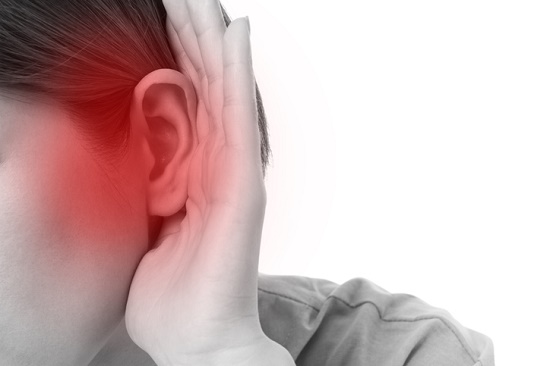
Hearing loss is only a problem for older people, right?
Not quite. While it’s true that your chances of developing hearing loss increase with age, you can, in truth, develop hearing loss at any age.
As stated by the NIDCD, 26 million Americans age 20 to 69 have high-frequency hearing loss from being exposed to loud noise at work and during leisure activities. And that includes 1 in 14 generation Xers, age 29-40, who already have hearing loss.
Considering that hearing loss can strike at any age, it’s imperative to understand the signs as they’re often discreet and tough to perceive.
Here are 8 silent signs of hearing loss that should prompt you to get a hearing test.
1. Ringing in the ears
Have you ever returned home from a deafening live concert and observed a ringing or humming in your ears?
If yes, that indicates you’ve injured the nerve cells of hearing in your inner ear. If it’s only happened a few times, the damage is most likely short-term and mild. However, continual exposure or one-time direct exposure to very loud sounds could generate irreversible damage and hearing loss.
If you continue to hear ringing in your ears, you should schedule a hearing test as this is one of the first signs of hearing damage. And if skipping upcoming live shows is not a viable alternative for you, your hearing professional can help you prevent further damage with custom-made earplugs.
2. Balance problems
Your hearing and balance are intricately connected. In fact, a large part of your ability to remain balanced is a consequence of sophisticated structures within the inner ear.
If you detect that you’ve been more clumsy lately, the problem may actually be with your ears. In fact, a study by Johns Hopkins University found that those with hearing loss were three times more likely to have a history of falling, depending on the degree of hearing loss.
3. Memory impairment
Your short-term or working memory is very limited, able to deal with only a few items for a short time frame. That indicates you don’t have time to catch up on missed words during fast-moving conversations.
With hearing loss, speech comprehension suffers as you can entirely miss or misinterpret the speaker’s words or statement. This manifests later when you can’t recall significant information.
4. Painful sounds
When you lose your hearing, you may become exceedingly sensitive to particular sounds, to the point where they become painful.
The scientific term for this is hyperacusis, and you’ll want to talk with a hearing professional if the problem continues or becomes intolerable.
5. Listening exhaustion
Just imagine spending the day trying to determine meaning from half-heard words and sentences and responding to questions you didn’t fully hear. That amount of attention can wear you out fast.
If you notice you’re excessively exhausted at the end of the day, hearing loss may be to blame.
6. Trouble hearing in groups
Early stage hearing loss typically doesn’t present itself during person-to-person conversations or in quiet settings. Most often, hearing loss only becomes an issue in the presence of background noise or in group settings.
7. Not hearing alarms or calls
Hearing loss is most of the time tough to notice or identify as it builds up progressively each year. Oftentimes, friends and family members will notice the hearing loss prior to the person suffering from it does.
But there are some warning signs you can watch for, including the inability to hear alarms or calls, the doorbell, or the television at normal volume.
8. Trouble hearing movie dialogue
With hearing loss, you may have particular problems hearing the conversations in tv shows and movies. That’s because the majority of cases of hearing loss affect high-frequency sounds to the greatest degree, and speech is a high-frequency sound.
It’s never too early to care for your hearing health. If you experience any of these symptoms, arrange a consultation with your local hearing professional.